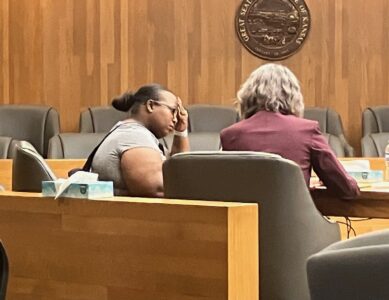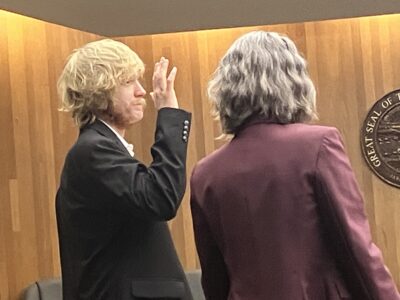Texting while driving ban tricky for police, prosecutors to enforce
Lawrence police still grapple with enforcing a state law approaching its third anniversary that bans texting while driving.
For one, police say, determining whether a driver is using his phone to text is difficult enough, particularly for an officer patrolling alone.
Meanwhile, police and prosecutors must also navigate the law’s exceptions, which allow drivers to use a phone’s map application or check emergency alerts while driving. Lawrence Police Chief Tarik Khatib said he is often asked how police patrol for drivers who text while operating their vehicle. He acknowledges that it isn’t possible often.
“You need two people,” Khatib said. “Because if I’m going to try to pay attention to who’s texting while driving, I’m going to have an accident. You’ve got to have an officer driving and you’ll probably want a second officer at a higher view sitting there.”
The alternative — trying to patrol while parked along the side of a roadway — is no less difficult, police say. Often, other motorists are in a better position than police to notice fellow drivers texting, said Sgt. Trent McKinley, a Lawrence Police Department spokesman.
According to the most recent data from the Kansas Department of Transportation, accidents caused by drivers being distracted by their cellphones rose from 292 in 2005 to 518 in 2010, with injuries increasing from 144 in 2005 to 260 in 2010.
Exceptions within the state’s law further complicate attempts to issue citations for texting while driving. Drivers’ phones typically are examined to try to prove texting as the source of a distraction only in accidents causing death or serious injury, McKinley said.
“At the heart of it,” McKinley said, “these devices create a distraction. You’re taking your eyes off the road for a significant period of time.”
Elizabeth Hafoka, the supervising city prosecutor, said she has seen convictions using the current law based on evidence supplied by a police officer. But with smartphones becoming more prevalent and more sophisticated, Hafoka said there may come a time to review the law.







